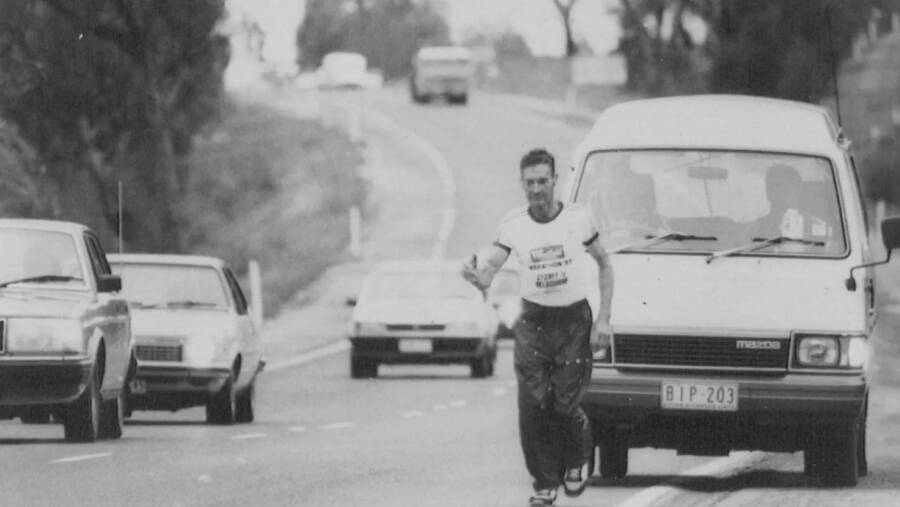Saved By Grace Through Faith – But WHEN?
For by grace you have been saved through faith; and that not of yourselves, it is the gift of God; not as a result of works, so that no one may boast. Ephesians 2:8-9
It’s the greatest news ever told or heard! God saves lost people — as His free gift. We sinners cannot deliver ourselves, and we cannot earn God’s favor by works. No one can boast of having paid even the least part of the cost of everlasting life. Without Jesus Christ we are “dead in our trespasses and sins” (Ephesians 2:1-3). And yet God, because of His rich mercy, love, and grace, is able and willing to bring us dead sinners to life (Ephesians 2:4-10)!
Many people who love God, attend church services, and hear sermons week after week, treasure the precious words from Ephesians 2:8-9, cited above. Many realize that salvation is based on God’s generosity and that it is received through personal faith. That’s beyond question.
However, sincere people differ drastically over the question, “When does that happen?”
The question before us now is not what saves us – that’s grace – or even by what means – that’s faith. Our question is when. When is one saved by grace through faith? When does one connect to God’s grace by faith and receive the free gift of salvation?
Before we see the Bible’s answer, let’s review all of Ephesians 2. It basically tells us three things twice: what we were, what God did, and, if we are Christians, who we are now as a result.
Eph 2:1-3 What we were.
Eph 2:4-9 What God did.
Eph 2:10 Who we are now.
Then again:
Eph 2:11-12 What we were.
Eph 2:13-18 What God did.
Eph 2:19-22 Who we are now.
It is emphatically clear that we once were dead in our own sins, disobedient, following our own desires, and deserving of God’s wrath. We were separate from Christ, having no hope, without God, in the world, far from God. We were totally helpless.
It is equally clear that God, because He is rich in mercy and love, can make dead sinners alive, raise them with Christ, and even seat them with Christ in heavenly places.
The power is in the sacrifice of Jesus Christ. His blood purchased our forgiveness and paid our debt. His resurrection guaranteed and confirmed that victory.
Because of what He did for us, we can become God’s workmanship. Strangers once lost in sin can be transformed into fellow citizens in God’s family with all the saints! We can serve, and grow, and worship, as part of His church!
Now let’s go back to our question. It’s not what, but when.
When is a person saved by grace through faith?
A gift must be received. There has to be a point at which it changes hands from the giver to the recipient. What is that point of time, when it comes to being saved? When is a lost, dead sinner made alive with Christ and raised with Christ?
Ephesians 2 does not answer that question. It just does not. It tells us the why, the who, and the what of salvation, but not the when. It tells us the means – “through faith” – but not how and when that faith receives salvation. Of course, Paul wrote this letter to those who already knew when they were saved. They did not need to be told.
Some teach today that the “when” is the moment of one’s initial faith, without any expression of that faith. One senses that he or she has been “born again” in the heart. That subjective feeling of joy or peace becomes the basis for that person’s assurance of salvation. He or she may say, “I know I’m saved because I feel saved.”
Others teach today that one initially receives salvation when he or she prays the so-called “Sinner’s Prayer,” or makes a “decision for Christ,” or “asks Christ into one’s heart.” They realize that one must express faith in some way, that one cannot base one’s assurance on a subjective faith feeling.
However, these popular responses to the gospel, though they are widely accepted, are not found anywhere in the Bible. They were invented by men who either overlooked or else rejected the Bible’s own perfectly clear teaching.
What is that teaching? To find the Bible’s answer, not our own, we must look for a passage parallel to Ephesians 2 that tells us when one is saved by grace through faith.
We do not have to go far to find it.
Paul’s letter to the Colossians is something of a “sister letter” to Ephesians. Both were written during the same time, when Paul was in prison in Rome. He addressed both letters to churches in Asia Minor that were primarily composed of Gentiles. He covered many similar themes and used many identical phrases in both Ephesians and Colossians. Let’s notice some of the parallels.
Ephesians 2 speaks of being dead in trespasses and these Gentiles having been uncircumcised. So does Colossians.
Ephesians 2 says we are saved by the blood of Christ through faith. So does Colossians.
Ephesians 2 says we are made alive and raised with Christ. So does Colossians.
The difference is that Colossians tells us very specifically when.
With an open Bible and an open mind, setting aside for a moment whatever you may have been taught before, read for yourself what the Word of God teaches.
Colossians 2:11 … and in Him you were also circumcised with a circumcision made without hands, in the removal of the body of the flesh by the circumcision of Christ; 12 having been buried with Him in baptism, in which you were also raised up with Him through faith in the working of God, who raised Him from the dead. 13 When you were dead in your transgressions and the uncircumcision of your flesh, He made you alive together with Him, having forgiven us all our transgressions.
According to this Scripture, when is a person saved by grace through faith? When is a dead sinner buried, raised with Christ, and made alive? This takes place “by grace through faith” when one is baptized (immersed in water). Now we know. We have seen it for ourselves. It is so simple and so clear.
Once you see it in Ephesians and Colossians, you will see it again and again.
It’s in Galatians.
Gal 3:1-14 Through faith, not works. Similar to Ephesians 2.
Gal 3:15-21 Through faith, by grace. Again, similar to Ephesians 2.
When? Where? How?
Gal 3:26 For you are all sons of God through faith in Christ Jesus. 27 For all of you who were baptized into Christ have clothed yourselves with Christ.
When does a person become a child of God “by grace through faith?” It is when that person is clothed with Christ or puts on Christ in baptism (immersion in water).
It’s in Romans.
Rom 3:23-24 By grace.
Rom 5:1 Through faith.
When? Where? How?
Rom 6:3 Do you not know that all of us who were baptized into Christ Jesus were baptized into His death? 4 Therefore we have been buried with Him through baptism into death, so that, as Christ was raised from the dead through the glory of the Father, so we too might walk in newness of life.
When does a person come “into Christ Jesus,” “into His death?” In baptism.
When does a person rise from death to begin his or her new life? In baptism.
It’s in Titus.
Tit 2:11 By grace.
Tit 1:1 Through faith.
When? Where? How?
Tit 3:5 He saved us, not on the basis of deeds which we have done in righteousness, but according to His mercy, by the washing of regeneration and renewing by the Holy Spirit, 6 whom He poured out upon us richly through Jesus Christ our Savior, 7 so that being justified by His grace we would be made heirs according to the hope of eternal life.
The “washing of regeneration and renewing by the Holy Spirit” in Titus 3:5 parallels Jesus own teaching. He told Nicodemus in John 3:5, “Truly, truly, I say to you, unless one is born of water and the Spirit he cannot enter into the kingdom of God.”
Of course, water itself does not have the power to save. It is God who saves “by grace through faith.” But when? When “one is born of water and the Spirit.” The context makes clear that Jesus through His disciples was baptizing people in water, even more people than John the Baptizer!
Jn 3:22 After these things Jesus and His disciples came into the land of Judea, and there He was spending time with them and baptizing. 23 John also was baptizing in Aenon near Salim, because there was much water there; and people were coming and were being baptized—
Jn 4:1 Therefore when the Lord knew that the Pharisees had heard that Jesus was making and baptizing more disciples than John 2 (although Jesus Himself was not baptizing, but His disciples were) …
It’s in Acts.
In Acts 16:30, the jailer in Philippi asked, “What must I do to be saved?”
In Acts 16:31, Paul and Silas said, “Believe in the Lord Jesus, and you will be saved, you and your household.”
Then the Bible records how and when the jailer and his household believed in (put their faith in) the Lord Jesus.
Acts 16:32 And they spoke the word of the Lord to him together with all who were in his house. 33 And he took them that very hour of the night and washed their wounds, and immediately he was baptized, he and all his household. 34 And he brought them into his house and set food before them, and rejoiced greatly, having believed in God with his whole household.
Salvation is a gift, purchased by Christ, and free for the taking. Yet it must be accepted as God’s Word teaches.
Perhaps you, like many others, were told to “receive Christ” in some other way, through a “sinner’s prayer” or a “decision for Christ.” Perhaps, at some later point, you were baptized, but you did not understand the biblical rationale and purpose for baptism.
Whatever the case, why not follow the simple instructions given in the very first sermon preached in Acts 2, on the Day of Pentecost?
Acts 2:36 “Therefore let all the house of Israel know for certain that God has made Him both Lord and Christ—this Jesus whom you crucified.” 37 Now when they heard this, they were pierced to the heart, and said to Peter and the rest of the apostles, “Brethren, what shall we do?” 38 Peter said to them, “Repent, and each of you be baptized in the name of Jesus Christ for the forgiveness of your sins; and you will receive the gift of the Holy Spirit. 39 “For the promise is for you and your children and for all who are far off, as many as the Lord our God will call to Himself.” 40 And with many other words he solemnly testified and kept on exhorting them, saying, “Be saved from this perverse generation!” 41 So then, those who had received his word were baptized; and that day there were added about three thousand souls.





























.png)















